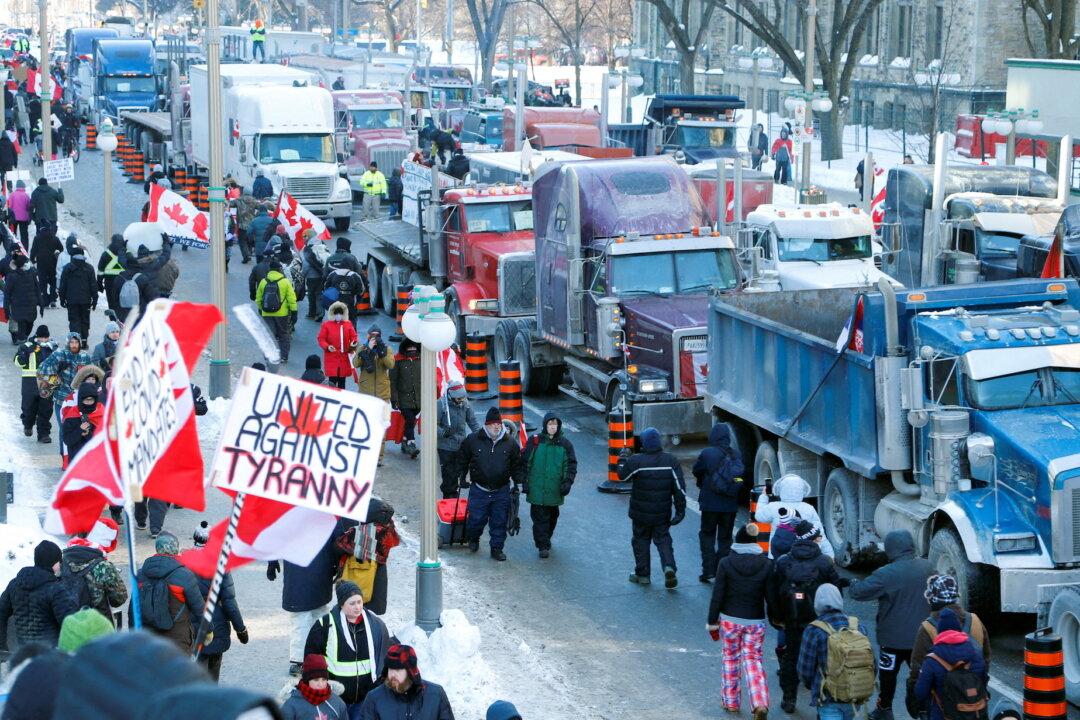The Ontario Ministry of Transportation (MTO) confirmed that it shut down nearly 40 businesses during its crackdown on Freedom Convoy protesters opposing COVID-19 mandates and restrictions.
In an email to Global News on Feb. 23, Dakota Brasier, a spokesperson for Minister of Transportation Caroline Mulroney, said the ministry had issued 12 seizure orders to Ontario-based large truck operators which suspended them from being allowed to operate within Canada.




